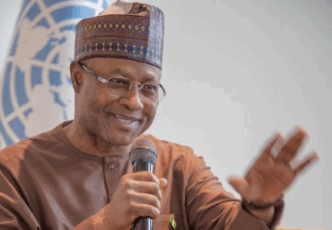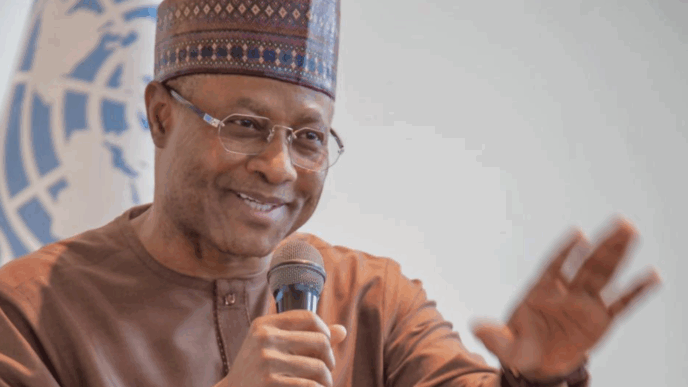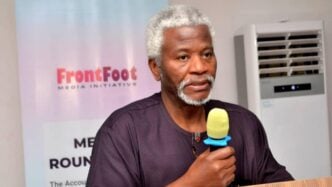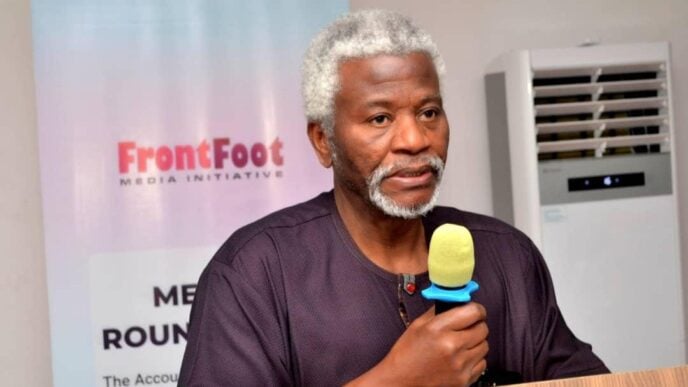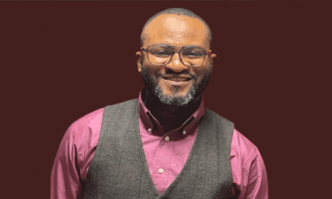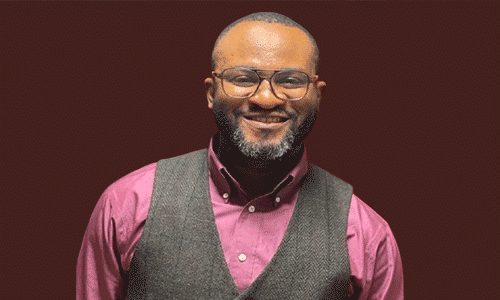"Peace" written on the sand at the beach during sunset, photo with copy space
BY AILEKU SOKOAJIN
Ceasefire! Truce! Armistice! Guns silent! Halt in hostilities! Pause in violence!
Marking International Peace Day has always been about a renewed call for peace in our increasingly volatile world. This year, September 21, 2025, is no exception. The theme “Act Now for a Peaceful World” appeals for urgent and concrete actions by individuals, communities, and institutions to promote harmony. It signals that to achieve peace, all hands must be on deck.
Yet, responses to these calls are not only devised on global stages but also shaped in villages, towns, and cities. The power of citizens and grassroots action is central to advancing peace in Nigeria. The 2025 theme raises an important question: do calls for ceasefires and non-violence truly resonate in people’s daily lives, and how can community initiatives feed into national peace architecture? Nigeria, faced with major insecurities in the nooks and crannies of the country, must embrace grassroots voices as essential drivers of peace.
Advertisement
The question is, why do grassroots voices matter? Peace in Nigeria is often framed in terms of government policy, military strategy, or international diplomacy. While these are vital, the people who live with the consequences of conflict on a daily basis must be engaged. Beneath the headlines of villagers fleeing their homes, women widowed by violence, youths lured into banditry, and communities fractured by mistrust, lie the human faces of Nigeria’s security crisis.
When grassroots voices are excluded, peacebuilding becomes fragile. Ceasefire agreements or disarmament programmes tend to collapse if they do not account for local grievances, cultural sensitivities, and economic needs. A truce may silence guns temporarily, but without justice, livelihoods, and reconciliation, hostilities soon return from the bottom. By contrast, when communities participate directly in dialogue and peacebuilding, outcomes are more sustainable. Consequently, engaging traditional rulers, faith leaders, civil societies, and youth organisations can help play vital roles in mediating conflicts, rebuilding trust, and promoting coexistence.
Traditional rulers have historically been custodians of land and inter-communal relations. Their legitimacy and cultural knowledge in matters such as land tenure systems give them unique influence in mediating disputes. However, approaches in conflict management and resolution vary across communities. In some states in the north-central, for example, strategies such as mediation, compensation, oath-taking, and even spiritual rites are employed to resolve disputes between farmers and herders.
Advertisement
In Benue state, traditional rulers and elders mediate farmer-herder conflicts through culturally rooted practices emphasising dialogue, reconciliation, and restitution. The IjovNyian peace assembly brings chiefs, elders, and disputants together in neutral spaces to negotiate solutions, often accompanied by symbolic gestures such as kola nuts or livestock to demonstrate sincerity. Among other communities, elders’ councils use negotiation, livestock compensation, and proverbs to convey peace messages. These culturally grounded practices often prove that cultural authority and symbolic rituals sustain peace and communal trust more effectively than litigation or police intervention.
Furthermore, faith-based approaches can be adopted to propagate grassroots peace initiatives. Religious leaders can provide a vital dimension to grassroots peacebuilding, as seen with initiatives such as those by the UFUK Dialogue Foundation and the Nigerian Inter-Religious Council (NIREC), which foster interfaith dialogue, reconciliation, and trust across divided communities.
Additionally, grassroots peacebuilding is further strengthened when young people take the lead. Youth-led peace engagements can translate the idea of peace from abstract aspiration into practice. Curating initiatives that focus on early intervention, peace education, peer mediation, and neighbourhood action is a solid approach. Students can also learn to resolve small disputes, facilitate dialogue, and extend these skills into their communities.
The Institute for Peace and Conflict Resolution (IPCR), a national research think tank on issues of peace and conflict resolution, has consistently championed this approach. By exposing students to its mandate, interventions, and partnerships, IPCR equips them with the tools to replicate peace initiatives locally. These engagements fit within the broader framework of youth-led peace clubs, empowering young Nigerians to serve as ambassadors of dialogue, tolerance, and conflict prevention.
Advertisement
Another frontier of grassroots action is the digital space. While platforms such as Facebook, WhatsApp, TikTok, and X (formerly Twitter) offer tools for civic participation, they are also exploited to spread hate speech, fake news, and divisive narratives that inflame tensions. The 2019 and 2023 elections showed how online disinformation undermined trust in institutions, polarised communities, and provoked violence.
Civil society groups have emerged as frontline defenders of truth. These entities frame hate speech not solely as a free speech issue but also as a potential threat to security. Organisations such as Dubawa, Africa Check, and the Centre for Democracy and Development (CDD) conduct fact-checking initiatives, train journalists, and educate communities. CDD, for instance, launched an Election Analysis Centre (EAC) in February 2019, designed to counter fake news and disinformation during the 2019 general election.
Importantly, the workshops and trainings organised by CSOs often emphasise equipping young people and journalists with fact-checking and verification skills, including in local or indigenous contexts. These workshops empower youth, journalists, and community leaders to resist polarising narratives.
Here too, IPCR strengthens civil society by lending legitimacy and national reach to the campaign against online misinformation. Through its research, policy advice, and peace education programmes, IPCR acts as a link between grassroots activism and government policy. It has convened multi-stakeholder forums where CSOs, government agencies, and policymakers deliberate on countering hate speech and misinformation. It has organised training workshops and partnered with universities and student groups to extend digital peacebuilding to local communities.
Advertisement
For example, IPCR and the Building Blocks for Peace Foundation hosted a “Training of Trainers” on combating hate speech, supported by the Nigeria Youth Futures Fund (NYFF), stressing the need to empower youth for the positive deployment of technology in shaping Nigeria’s peace narrative.
Together, civil society organisations and IPCR show that countering hate speech and misinformation is inseparable from peacebuilding. CSOs bring agility, innovation, and grassroots legitimacy, while IPCR provides policy coherence, institutional credibility, and national backing.
Advertisement
International Peace Day 2025 serves as a reminder that ceasefires and truces are merely the initial steps; maintaining peace necessitates the bravery of grassroots voices. Nigeria’s traditional rulers, faith leaders, youth organisations, civil societies, and IPCR each exemplify that peacebuilding is most effective when grounded in local realities.
In a nation as diverse and contested as Nigeria, this synergy is not merely necessary but indispensable for the sustenance of peace and the consolidation of democracy. As the renowned peace researcher, Elise Boulding reminds us, “There is no time left for anything but to make peace work a dimension of our every waking activity.”
Advertisement
Sokoajin is a researcher at the Institute for Peace and Conflict Resolution.
Advertisement
Views expressed by contributors are strictly personal and not of TheCable.


